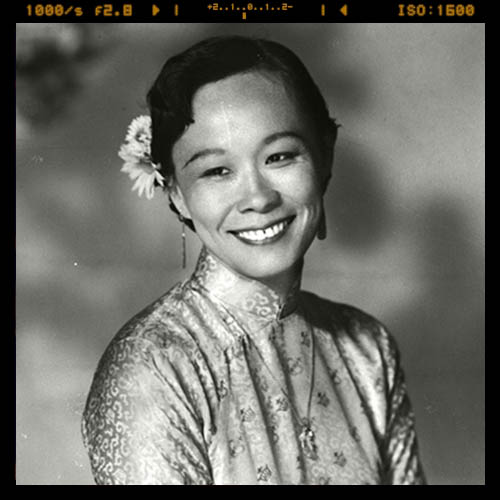Ask a Badass is an advice column answered by history’s hidden badasses, writing as they see their whole lives and our modern world.

Dear Badass,
I just burst into tears watching a comedy on Netflix about a family getting over their differences. My parents were always angry. I grew up learning to be invisible. If I could just be small enough, maybe I could avoid their hands and insults. I got out and built a pretty good life for myself. We’re in distant contact. I never talk about my childhood. They remember it nostalgically. Most of the time I feel okay. Sometimes, though. Something small will set me off, like watching that show tonight. I mean, part of me feels like it’s not that bad. So, I get emotional sometimes. I still got a pretty good life. But this can’t be good for me, right? What should I do?
Not Broken, But Maybe Not Healed
Dear Not Broken, But Maybe Not Healed,
Forgiveness is no easy thing. Your culture talks about it lightly, as if it is a simple gift easily bestowed. True forgiveness is a labor and a sacrifice. Maybe it will help you to know that.
I grew up in a missionary school with the crucifix above us. As a child, I thought it represented Jesus’ sacrifice in going willingly to suffering. As I learned more, I wondered if the miracle was that he prayed for the men who were torturing him to death. The Gospel of Luke tells us of Christ’s forgiveness on the cross, while Matthew and Mark speak of Jesus asking, “My God, why have you forsaken me?” My teachers skip lightly over this story, as if they feared a contradiction between the Jesus of forgiveness and despair. Faith is not a protection from despair, but a path through it.
I despaired during my imprisonment. How could I not? The invaders tried everything they could to break my spirit. A lone woman in a tiny cell with twenty men, I was frantic for word of my husband. They tortured me for information I did not have. They tortured me in front of my husband. When we still didn’t know what they wanted, they told us we were to be executed and forced us to say our final goodbyes.
If I didn’t have my faith, I don’t know how I would’ve gotten through it all. I was released after six months of torture, but I didn’t see my husband until after the war. I tried to recover and help resist the invaders while I had no idea if any of us would survive these horrible times.
When the British returned, I refused to single out my torturers for execution. “I shall not forget but I shall forgive.” I didn’t forget. For the rest of my life, electricity brought me back to that horrible room of pain. You can imagine what it meant to avoid electricity in a modern city like Singapore.
Forgiveness is not a magic wand. It’s not even something you do once. It is a practice, like prayer. I carried the weight of what I could not forget, but I left those men and their cruelty in the past. I did not carry their deaths with me. That was what forgiveness meant.
If you forgive your parents, it will not change the past. You will never have the childhood you wish you had. You may never share the story your parents seem to have wrapped around their memories. Grieve for what you wish, but you must know that your past will never change.
You must forgive your parents not to change what was, but as you yourself hope to be forgiven for your mistakes. You forgive them so you do not carry your rage. Life is too long and too wide to be held down by such a weight. You forgive them because clearing your spirit of grudges leaves space for hope to enter in.
I have no words to make forgiveness easy because it’s not. It’s a difficult daily chore. But in the 63 years I lived after my imprisonment, I formed a women’s volunteer corps, taught children, campaigned for social services, traveled to meet the Queen of England, gave speeches throughout North America, and led Singapore’s School for the Blind. Would I have seen so much if I’d dragged my torturers’ bodies behind me for the rest of my life?
Forgiveness is the key to the last door of your prison. Find the faith to open it.
Elizabeth Su Moi Choy
Born in Kudat in 1910 to a Hakka Christian family in what was then British North Borneo and what is now Malaysia. Died of pancreatic cancer on 14 September 2006 in Singapore and was honored with a wake at St. Andrew’s Cathedral. She moved to Singapore to study and became a teacher at St. Andrew’s school, eventually marrying the son of a classmate’s guardian. After the Japanese invasion, they opened a hospital canteen that became a channel for passing goods and messages for the resistance, which led to their arrest after a successful sabotage mission. Elizabeth credited her faith for surviving her torture and she went on to spend her life helping the vulnerable as Singapore developed.
See an excerpt on a profile about her by St Andrew’s.
Fill out our form, and we’ll let you know if one of the badasses responds!